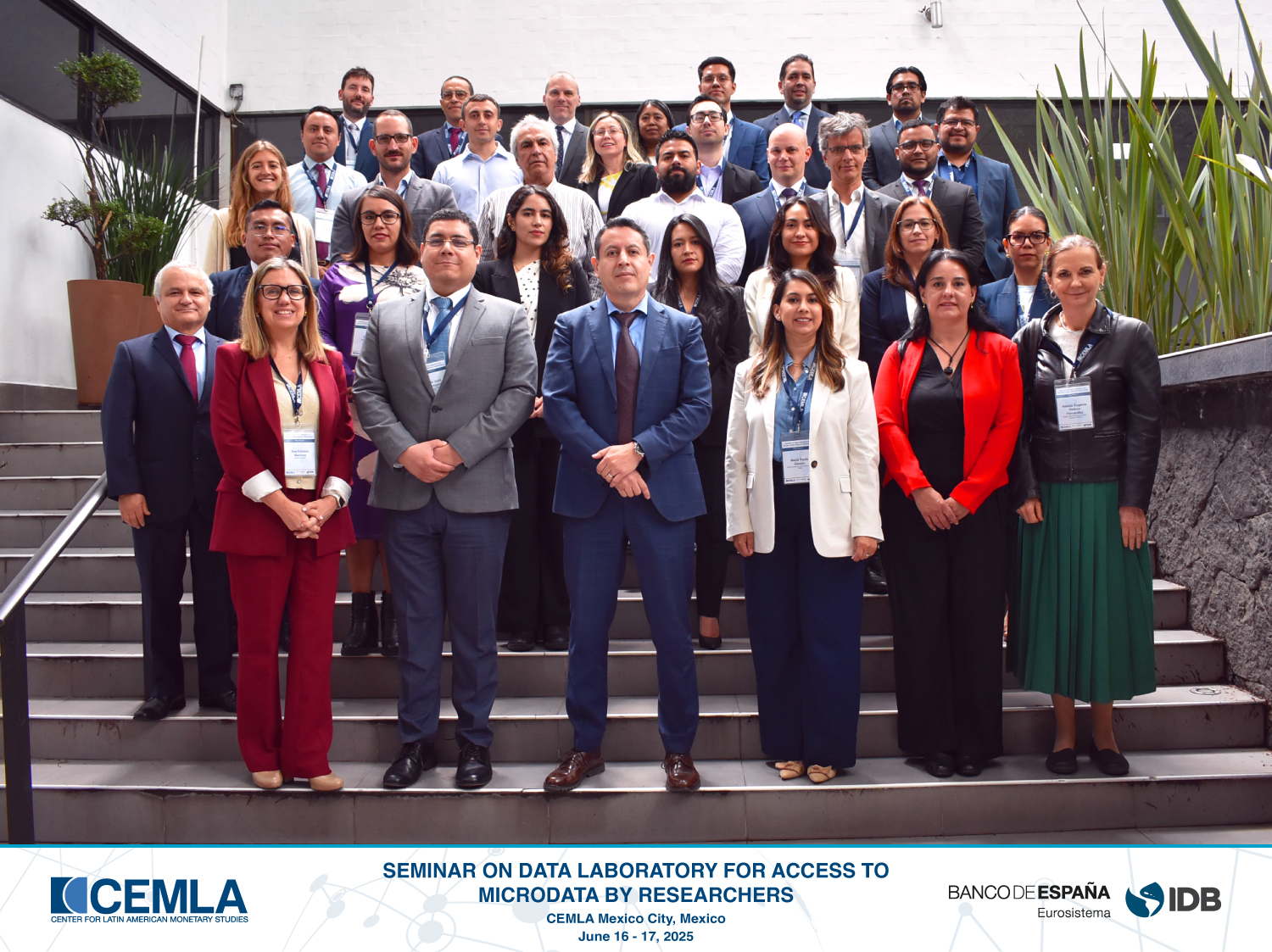

Disponible en Español ![]()
Seminar on Data Laboratory for Access to Microdata by Researchers
June 16 - 17, 2025
CEMLA Mexico City, Mexico
Face-to-face format
The course was held from June 16 to 17, 2025 at CEMLA's facilities in Mexico City, co-organized with the Banco de España and the Inter-American Development Bank. The objective of the event was to exchange experiences and ideas on the development, challenges and benefits of establishing data laboratories in central banks, and was attended by 42 attendees representing 22 institutions from 16 countries.
The first two sessions focused on segmentation and classification of data. It was explained that the main motivation for metadata standardization is to be able to obtain a complete understanding of the data to make application decisions, even if you are not an expert in the data. They also commented on the importance of being very clear about the topic to be dealt with in the research, to give the user a useful database and not waste time analyzing thousands of data. Experiences were shared on how this data is obtained and the dissemination of access to data was highlighted, as well as the communication to the entire population of aggregated data that may be of interest.
Sessions 3, 4, and 5 were more technical, focusing on the process of verifying, anonymizing, and reproducing data. They talked about what kind of data should be anonymized, and how platforms have been developed so that researchers can access the data remotely. Finally, experiences on cybersecurity in data platforms in the central banks of Mexico and Spain were shared.
In session 6, the perspective of 3 data users was shared: a researcher from a public institution, a PhD student, and a researcher from the World Bank. They mentioned that the response time of the institutions is very varied, and that sometimes they have to aggregate data from different databases.
Session 7 focused on the acquisition of administrative microdata in international organizations, and finally the course closed with a session on INEXDA, an organization focused on sharing experiences and facilitating the use of granular data for researchers. It currently has 12 members.

